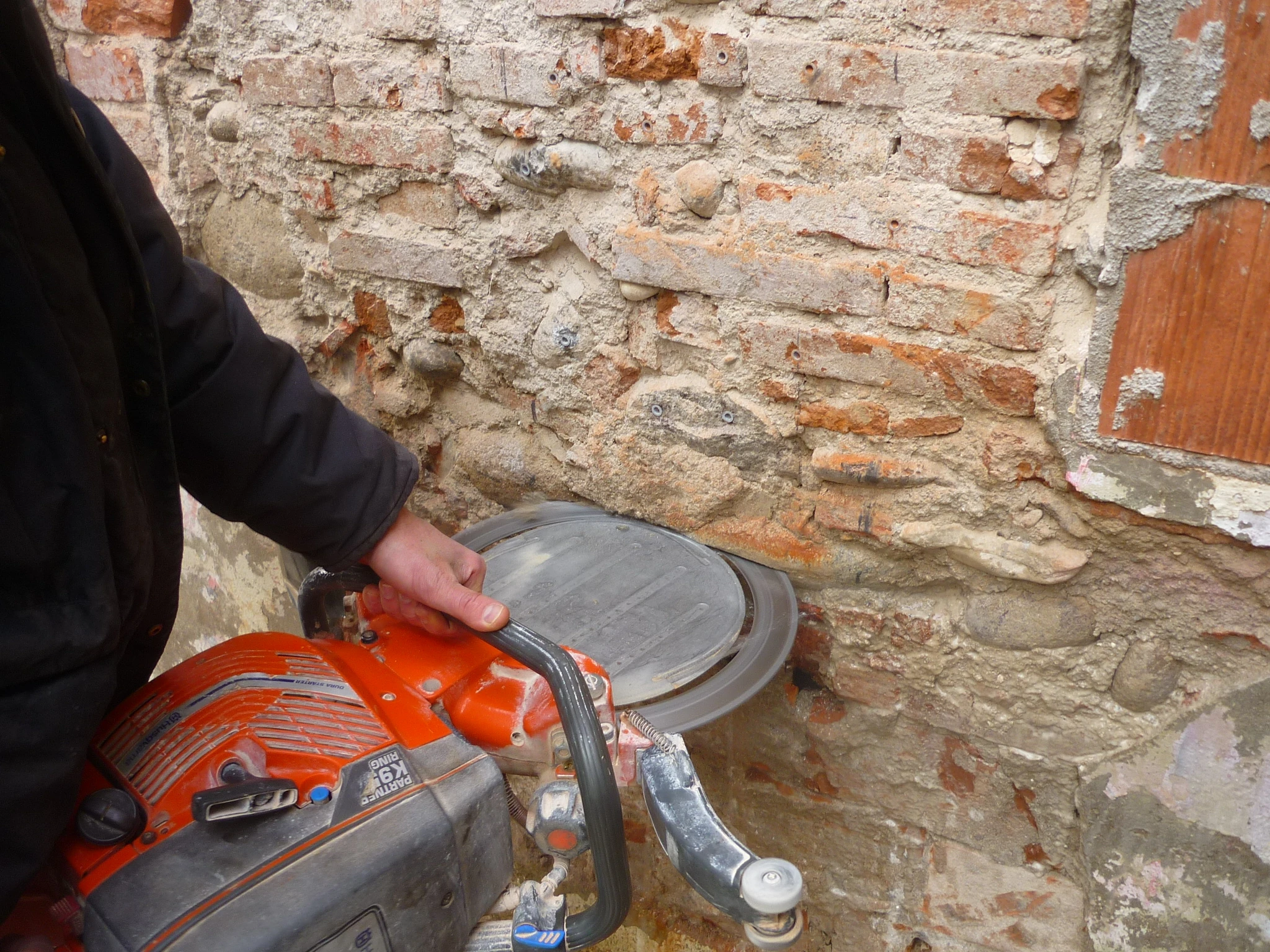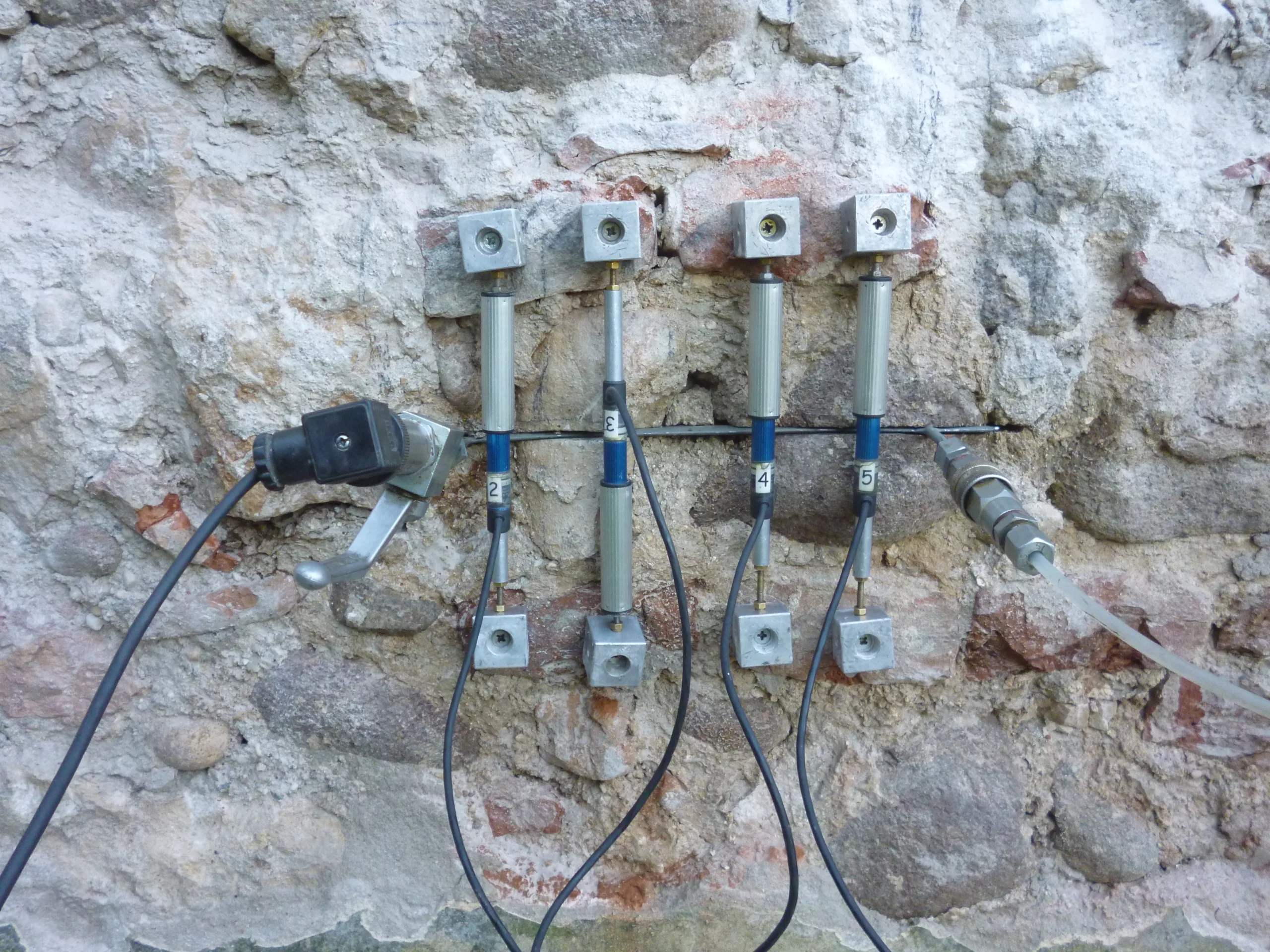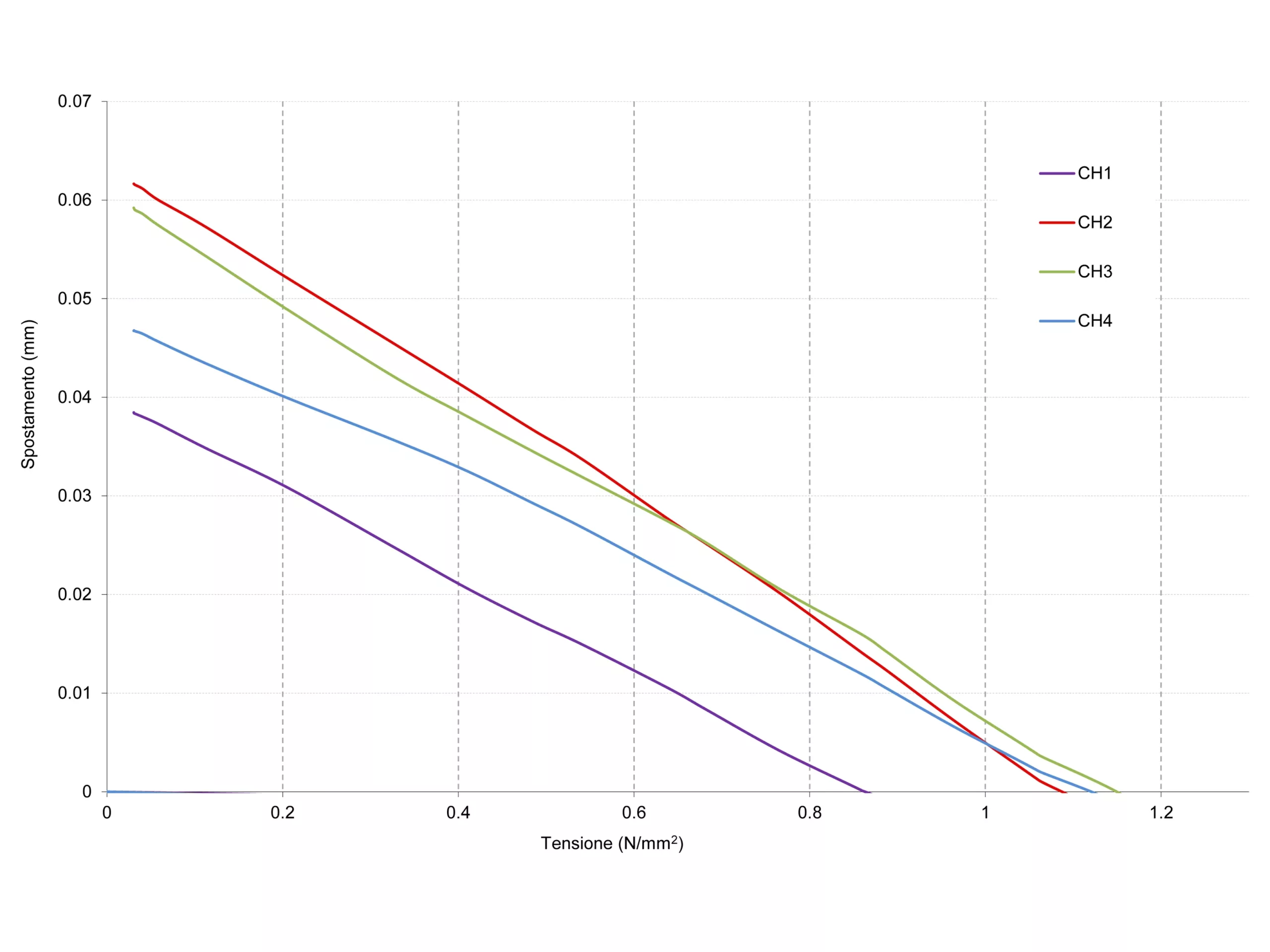


Single flat jack test
The single flat jack test is a technique used to obtain an estimate of the local stress state within a masonry wall under compression. The method relies upon the variation of the local stress state caused by a flat cut made in a direction normal to the wall surface. The stress release that occurs causes a partial closure of the cut, which is detected by measuring the relative distance between pairs of points placed in a symmetrical position with respect to the cut.
A flat jack made using thin welded steel sheets, connected to the hydraulic circuit of a pump, is then inserted into the cut. The internal pressure in the jack is then gradually increased: the test is considered complete when the initial measurements are restored and the corresponding pressure read on the jack corresponds to the local stress in the masonry, considering the multiplicative constants Ka and Km.
Reference standards: ASTM C 1196 – 14a; RILEM TC177 MDT.D.4.
